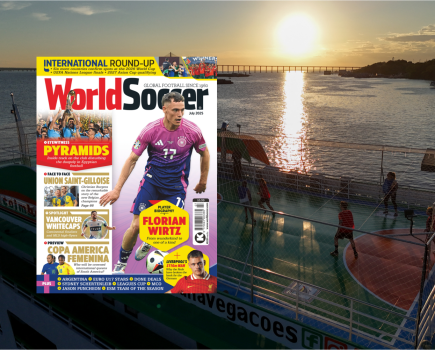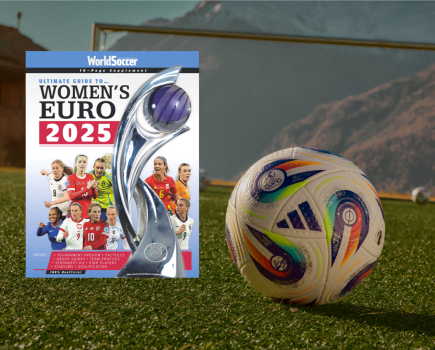 In sporting terms, Venezuela is unlike any other South American country. On the continent where football is king, Venezuela’s affections lie more with the sport of baseball and the queens of its infamous beauty pageants. Indeed, after the United States, Venezuela has the highest number of ‘Miss Universe’ winners.
In sporting terms, Venezuela is unlike any other South American country. On the continent where football is king, Venezuela’s affections lie more with the sport of baseball and the queens of its infamous beauty pageants. Indeed, after the United States, Venezuela has the highest number of ‘Miss Universe’ winners.
Venezuela’s somewhat unorthodox penchant for baseball stems from a heavy American presence in the oil-rich country during the early 20th century.
American oil workers brought with them not only their love of fastfood and shopping malls but significantly, the sport played on a diamond-shaped pitch. The popularity of baseball in Venezuela grew as the country’s national team won the Baseball World Cup three times in the 1940’s. It proudly proclaims itself as “El Pais de Béisbol” (The country of baseball) and proudly boasts of the 200 Venezuelans who have competed in America’s Major League Baseball.
Conversely, football, the main sport in every other country on the continent, has never had much of a following in Venezuela. As a result, the game – both domestically and nationally – has been extremely slow to develop. Despite being bordered by football stalwarts Brazil and Colombia, Venezuela is the only South American side never to have made it to the World Cup finals.
Granted, the qualification process is undeniably easier in CONCACAF than in its South American equivalent, CONMEBOL where two of the spots are practically reserved for Brazil and Argentina. It is the South American World Cup Qualifying campaign that has perhaps helped with the hindrance of the sport in Venezuela as much as their preference for other pastimes. Venezuela – affectionately known as ‘La Vinotinto’ (The Red Wine) due to their burgundy strip – have long been tarred as the continent’s whipping boys, or the Latin American equivalent of The Faroe Isles, if you will. That is, until recently.
South America’s Whipping Boys
From their first appearance in South America’s WCQ campaign for the 1966 World Cup in England, to their attempts to qualify for USA ‘94, Venezuela participated in seven qualifying campaigns (They withdrew from ’74), playing in a total of 36 games. Their woeful record read 2 wins, 3 draws and 31 losses, with a goal difference of -99. The use of small, seeded groups, however, meant that the majority of these games were played against far superior opposition.
Changes to the qualifying process for the 1998 qualifying campaign saw the introduction of the now-familiar round-robin schedule that sees each of the ten CONMEBOL members play each other home and away. The new format introduced for the ’98 qualifiers should have helped Venezuela to gain more points by virtue of playing the continent’s other weaker teams. It didn’t.
Even with Brazil not having to qualify due to the now-defunct reigning champions automatic qualification rule, Venezuela actually fared worse than in the majority of their previous campaigns. La Vinotinto mustered a grand total of 3 points from 16 games – all from draws – with a final goal difference of -33. With results like this, it is no wonder that the popularity of the world’s favourite sport remained low in Venezuela.
The Richard Páez Revolution
Following on from the dismal France ’98 qualifiers, Venezuela’s footballing stock couldn’t fall much further. The Venezuelan Football Federation (FVF) appointed former Venezuelan footballer Richard Páez as La Vinotinto’s new head coach. Páez took over half way through the 2002 qualifying campaign with The Red Wine languishing at the foot of the table. Following a typically poor performance at the 2001 Copa América, he guided the team to four successive wins in the latter stages of the qualifiers and a respectable 16 points.
The team even avoided picking up the continent’s wooden spoon for the first time in their history in the process. This was just the start of the Venezuelan football revolution. Buoyed by the relative success of the 2002 campaign, attentions turned to the 2006 qualifiers. Páez not only benefitted from an increasing pool of talent including the likes of Giancarlo Maldonado, free-kick specialist José Manuel Rey and Venezuelan football’s Golden Boy, Juan Arango, but he also helped to alter the mentality of the national team.
In a 2004 interview with Reuters he stated, “In the old days, we knew we were going to lose and the target was to avoid a thrashing. Now we try to play with balance, to attack as well as defend.”
The improved mentality combined with a fresh group of players plying their trade in Europe’s elite leagues enabled the team to improve upon the 2002 campaign. The team picked up 18 points, including 3 from a famous 3-0 victory away to Uruguay.
Expectations rise after hosting the Copa
With interest in football within Venezuela increasing due to La Vinotinto’s improved performances since the turn of the century, the 2007 Copa América arrived at a good time. Venezuela hosted the tournament that saw new, football specific stadia built around the country, bankrolled by Hugo Chavez’s generous government.
The tournament was a huge success, with Venezuela not only performing on the pitch – where they picked up only their second Copa win in their history – but also off it. The Venezuelan public rose to the occasion, attending matches in their droves as football became, albeit briefly, the nation’s favourite sport.
Venezuela went unbeaten to top their group before being humbled 4-1 by Uruguay in the quarter-finals. The tournament gave football fresh impetus in Venezuela and it wasn’t long until the expectations of the fans rose to previously unfeasible levels. Despite winning away in Ecuador and beating Bolivia 5-3 in an enthralling match in which they trailed three times, coach Richard Páez resigned just four games into the 2010 World Cup qualifying campaign, citing criticism from the fans as his reason for leaving. César Farías, a 34 year-old who had previously coached Deportivo Táchira, one of Venezuela’s most successful domestic teams, replaced him shortly afterwards.
The Red Wine Matures With Age
Farías continued where Páez had left off, guiding the team to an impressive 22-point haul that included a commendable 0-0 draw in Brazil. However, perhaps the most intriguing result that Venezuela achieved in the 2010 qualifiers was the one they mustered in the notoriously difficult high-altitude of Bolivia’s capital La Paz in June 2009.
Two months earlier, Diego Maradona’s Argentina side had been thrashed by 6 goals to 1, with the squad having arrived in Bolivia only hours before the match – the Albiceleste visibly struggled with the conditions at almost 12,000ft above sea-level.
Venezuela opted for a different strategy when visiting Bolivia however. La Vinotinto assembled a secondary squad, consisting only two foreign based players, which arrived in Bolivia a full two weeks before the match was due to take place. The players acclimatised to the altitude and duly won 1-0. Far from being the continent’s whipping boys, Venezuela are now being taken seriously and at one stage the last qualifying place looked a distinct possibility. In the end, they finished just 2 points behind eventual 5th placed Uruguay, who went on to finish 4th at the World Cup in South Africa the following year.
The Golden Generation
César Farías has done far more than just stabilise the current national team however. The young coach was worked closely with the country’s youth teams, concentrating on guiding a promising group of young Venezuelan’s through the ranks and into the full squad.
Indeed, whilst coach of the full Venezuela squad, Farías took control of the country’s Under-20 squad at the U-20 World Cup in Egypt in 2009, guiding the team to the last 16 with notable victories over Nigeria and Tahiti (8-0). The main star of the team was the powerful striker Salomón Rondón, who bagged 4 goals in as many games to match the feat of teammate Yonathan Del Valle.
At the time, Rondón was playing in Spain’s Liga Segunda for Las Palmas, where his performances earned him a move to Primera Liga side Malaga in 2010. Rondón scored an impressive 14 league goals to help Malaga to safety and in the process has become one of Europe’s most coveted young strikers.
Malaga’s new-found Arabian wealth should help to keep Rondón in the south of Spain for the meantime but if his burgeoning reputation continues to rise, it won’t be long before the young Venezuelan finds himself scoring goals for one of Europe’s elite teams. Rondón possesses pace, power and a lethal finishing ability that should ensure he soon succeeds Juan Arango as Venezuelan football’s Golden Boy. Rondón, along with Del Valle and the skilful young Wolfsburg midfielder Yohandry Orozco, ensure that the future is beginning to look bright for Venezuela.
World Cup Ambitions
Venezuela have been unfortunate in finding themselves in a tough group for the current Copa America alongside Brazil, Paraguay and Ecuador. However, whilst progressing from their group would exceed expectations and show how far the national team has come, a strong performance in Argentina is not La Vinotinto’s most pressing concern.
Coach César Farías recently told FIFA.com: “Venezuela now have the experience and maturity to take the next step. We all have the feeling that there’s a great opportunity awaiting us after the Copa America.”
Indeed, Venezuela’s main objective is to qualify for the 2014 World Cup in Brazil. The fact that the hosts aren’t required to qualify should help their cause, as the four automatic qualification places remain, plus one play-off spot.
Farías believes now is the time for Venezuela to step up to the plate: “The reason we’ve not qualified before now was due to questions of time and footballing development. But we’re now the (South American) country which has made the most progress in football terms, and that’s quantifiable. This looks like being our World Cup.”
In a country synonymous with revolution, whilst its leader recovers from illness, there is no doubt that that the footballing revolution led by La Vinotinto is in rude health and well on its way to conquering the hearts and minds of a baseball-mad Venezuelan public.
By Alex Ferguson
This article originally appeared in In Bed with Maradona






